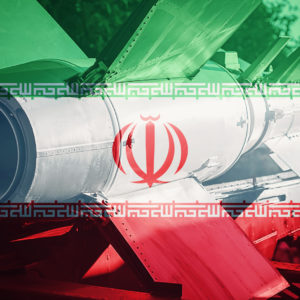“If Iran returns to strict compliance with the nuclear deal, the United States would rejoin the agreement as a starting point for follow-on negotiations,” Joe Biden promised in a policy essay just weeks before winning the presidential elections. While Biden recognizes the threat of Iran’s nuclear program, his team’s animosity toward Secretary of State Mike Pompeo’s maximum pressure strategy risks snatching defeat from the jaws of victory.
Partisan naysayers who call ‘maximum pressure’ misguided and ineffective are wrong. Pompeo’s demands amount to an end to Iranian terrorism, hostage-taking, illicit nuclear work, ballistic missile breakout, and destabilizations of neighbors. To suggest such demands are unrealistic is to normalize rogue behavior.
The idea behind pressure is sound. Twice, pressure has reversed Iranian policies. In 1981, Ayatollah Khomeini released U.S. hostages to relieve Iran’s isolation. Then, in 1988, Khomeini agreed to a ceasefire in the Iran-Iraq War. He likened that truce to drinking from “a chalice of poison,” but recognized regime survival required no less.
That Tehran has ratcheted up nuclear work under Trump is true, but that does not mean pressure has failed. Not all strategies neatly conform to the American political calendar. Iranian leaders burned through currency resources in the hope they could outlast Trump. In October 2020, the International Monetary Fund’s estimates of Iran’s available reserves were at $8.8 billion, a 90 percent decline from six months before.
Iran’s hard currency hemorrhage is evident throughout the region. In December, I visited Nabitiyeh in the heart of Hezbollah-controlled southern Lebanon. After Iranian paymasters had slashed Hezbollah salaries, they learned that perhaps only ten percent of the group’s members joined for ideology; the rest simply had wanted the cash. The slaughter in Syria—Hezbollah admits to losing 4,000 fighters—and Iran’s inability to respond in kind to the assassination of its military and nuclear chiefs have tarnished its image further.
Iran gambled everything in order to survive Trump. Partisans may despise Trump, but Biden could use the legacy of Trump’s pressure to his advantage without abandoning desire for diplomacy. The Obama administration erred by offering Iran $12 billion simply to come to the table. If Tehran’s reserves are nearing zero, Biden might simply slowball diplomacy.
Indeed, letting Iran’s hard currency reserves burn out may be the only way he can succeed. Amir Ali Hajizadeh, chief of the Revolutionary Guard’s Air Force, marked the first anniversary Qods Force chief Qassem Soleimani’s death by drawing a redline around Iran’s missile program. Among the biggest faults of the 2015 nuclear deal was the failure of Western countries to understand that the Islamic Revolutionary Guard Corps controls up to 40 percent of Iran’s economy. Rather than benefit ordinary Iranians, the regime channeled new investment disproportionately into hardline coffers. To offer Iran relief upfront would allow the Guards to insulate itself rather than incentivize cooperation. If regime survival is at stake, Khamenei might divert cash from Hajizadeh’s and Hezbollah’s slush funds into provisions for Iranians.
Biden could, however, put a progressive spin on his Iran policy. There is no reason why Democrats should support organized labor everywhere except inside Iran. The George W. Bush administration missed its Lech Walesa moment when, in 2005, Iranian labor activists staged wildcat strikes to demand back wages and protest poor working conditions. Every dollar the Revolutionary Guard-owned companies are forced to pay workers is money unavailable to fund nuclear enrichment or build missiles. Rather than simply give the regime cash transfers, money could be better spent on strike funds and in integrating independent Iranian trade unions into international confederations.
Biden might also rally progressives and European Greens to empower Iranian environmentalists. Anyone who has ever visited Tehran witnesses what poor stewards the regime is of the environment. The 18,000-foot Mount Damavand lies less than 50 miles from Tehran, but is visible only a few times each year because of Tehran’s thick smog. Rather than empower its environmentalists, the regime imprisons them. Simply put, the regime is both suspicious of any organization that transcends class and politics and fears crossing the Revolutionary Guards, which own the worst polluting companies.
The Islamic Republic played the waiting game to survive Trump. Biden could return the favor to strip Iran of its nuclear ambitions. He might talk but without artificial urgency. And while his chief supporters might want to blunt sanctions, Biden might channel aid to the Iranian most oppressed by the regime rather than those who run it. To succeed, diplomacy should be both smart and bipartisan.
Michael Rubin is a resident scholar at the American Enterprise Institute

